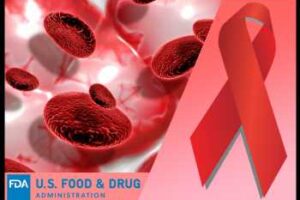FDA Approves Omisirge Cell Therapy For Blood Cancers

The U.S. Food and Drug Administration approved Gamida Cell Ltd.’s Omisirge (omidubicel-onlv) cell therapy for patients with blood cancers to reduce risk of infection following stem cell transplantation.
Gamida Cell shares gained around 39 percent on Monday’s regular trading. The gain continued in the after hours trading with a further growth of 4 percent.
Omisirge is a substantially modified allogeneic (donor) cord blood-based cell therapy to quicken the recovery of neutrophils, i.e., a subset of white blood cells, in the body and reduce the risk of infection.
The product is intended for use in adults and pediatric patients 12 years and older with blood cancers planned for umbilical cord blood transplantation following a myeloablative conditioning regimen, treatment such as radiation or chemotherapy.
The Omisirge application received Priority Review, Breakthrough Therapy and Orphan designations.
Blood cancers are caused by uncontrolled growth of cells in the blood, disrupting the ability of blood cells to perform their normal functions.
Stem cell transplantation, which involves putting healthy stem cells into the body to help restore the normal production and function of blood cells, is a common treatment for blood cancers. One source of healthy stem cells is umbilical cord blood.
Omisirge, administered as a single intravenous dose, is composed of human allogeneic stem cells from umbilical cord blood that are processed and cultured with nicotinamide, a form of vitamin B3.
The FDA approval was based on the safety and effectiveness of Omisirge that was supported by a randomized, multicenter study comparing transplantation of Omisirge to transplantation of umbilical cord blood, in subjects between the ages of 12 and 65 years. All of 125 subjects in the study had confirmed blood cancers.
The agency noted that the efficacy of Omisirge was based on the amount of time needed for recovery of the subject’s neutrophils, and the incidence of infections following transplantation.
In the trial, 87 percent of subjects who were randomized to receive Omisirge achieved neutrophil recovery with a median of 12 days following treatment with the product. This was compared to 83% of subjects who were randomized to receive umbilical cord blood transplantation and who achieved neutrophil recovery with a median of 22 days.
Further, the FDA warned that treatment with Omisirge has the potential to cause severe side effects, which must be considered in assessing the risks and benefits of using this product.
Similar to all approved umbilical cord products, the label carries a Boxed Warning for infusion reactions, graft versus host disease, engraftment syndrome, and graft failure.
Peter Marks, director of the FDA’s Center for Biologics Evaluation and Research, said, “Today’s approval is an important advance in cell therapy treatment in patients with blood cancers,” said “Hastening the return of the body’s white blood cells can reduce the possibility of serious or overwhelming infection associated with stem cell transplantation.”
For More Such Health News, visit rttnews.com
Source: Read Full Article
